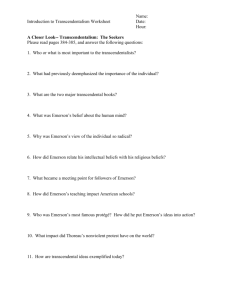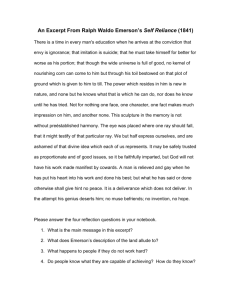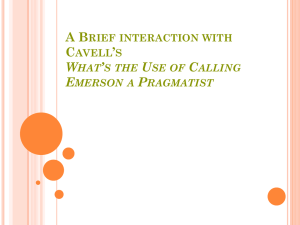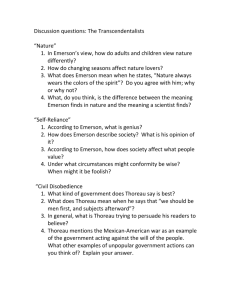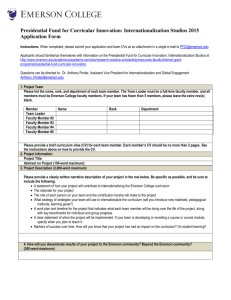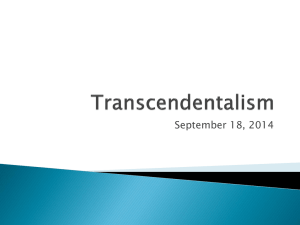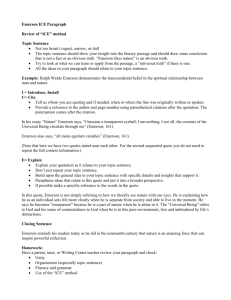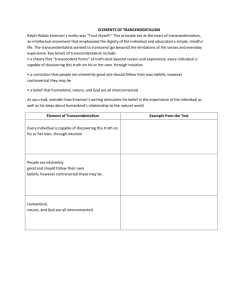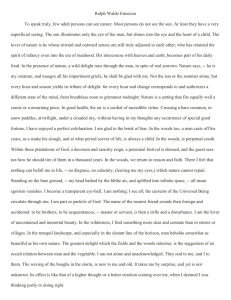From Nature
advertisement
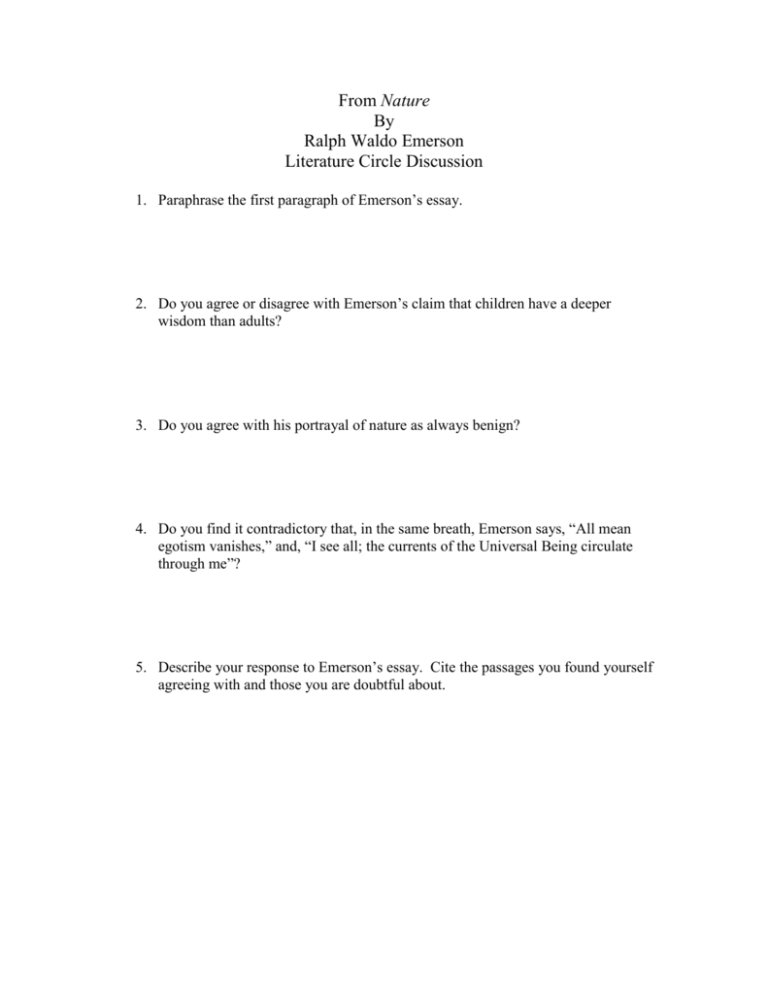
From Nature By Ralph Waldo Emerson Literature Circle Discussion 1. Paraphrase the first paragraph of Emerson’s essay. 2. Do you agree or disagree with Emerson’s claim that children have a deeper wisdom than adults? 3. Do you agree with his portrayal of nature as always benign? 4. Do you find it contradictory that, in the same breath, Emerson says, “All mean egotism vanishes,” and, “I see all; the currents of the Universal Being circulate through me”? 5. Describe your response to Emerson’s essay. Cite the passages you found yourself agreeing with and those you are doubtful about. From Self-Reliance 1. What does Emerson mean by “this sculpture in the memory?” 2. Do you agree that people only half express themselves? What examples can you cite supporting or refuting this from your own experience or knowledge? 3. Emerson is saying that greatness comes not so much through striving as through acceptance of one’s fate. DO you agree? 4. In “Self-Reliance,” what does he compare with these ordinary events and things: a. Planting corn b. An iron string c. Clay d. A stock-company e. Cannon balls 5. The most famous metaphor in “Self-Reliance” is the one that opens the final paragraph. How explain by what Emerson means by this metaphor? What exactly is a hobgoblin? What is a “little mind”? What would be a “wise” consistency? What would be a foolish consistency? Below, answer true or false to the following questions: 1. Transcendentalism began as a club. 2. Emerson’s belief that we can find God in nature made him an optimist. 3. Hawthorne and Poe are sometimes called “anti-transcendentalists.” Below, answer the following questions in your own words: 4. Explain, in your own words, Transcendentalism. 5. What was the Transcendental Club? 6. In your own words, explain the significance of the following quote: “To go into solitude, a man needs to retire as much from his chamber as from society.” 7. After reading “Nature” how would you define Emerson’s view of ourselves in relation to the universe?

